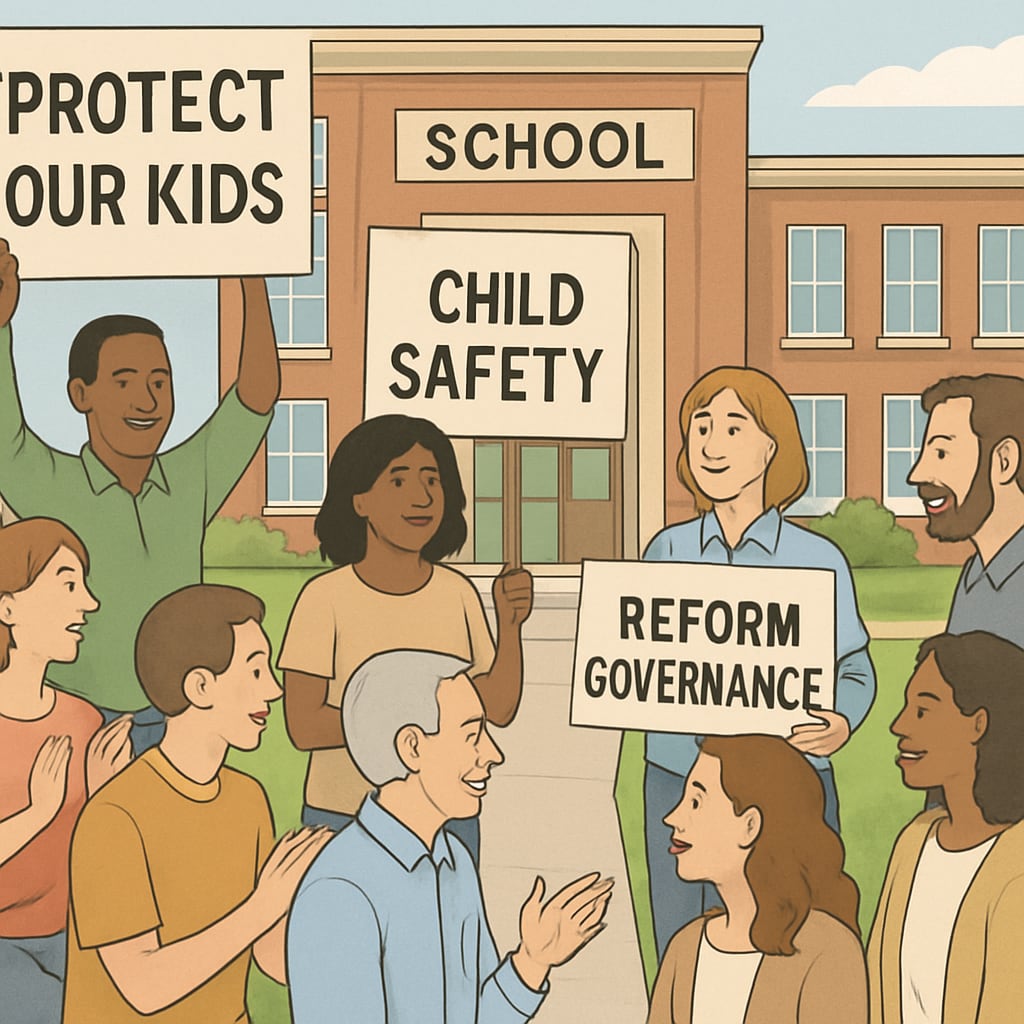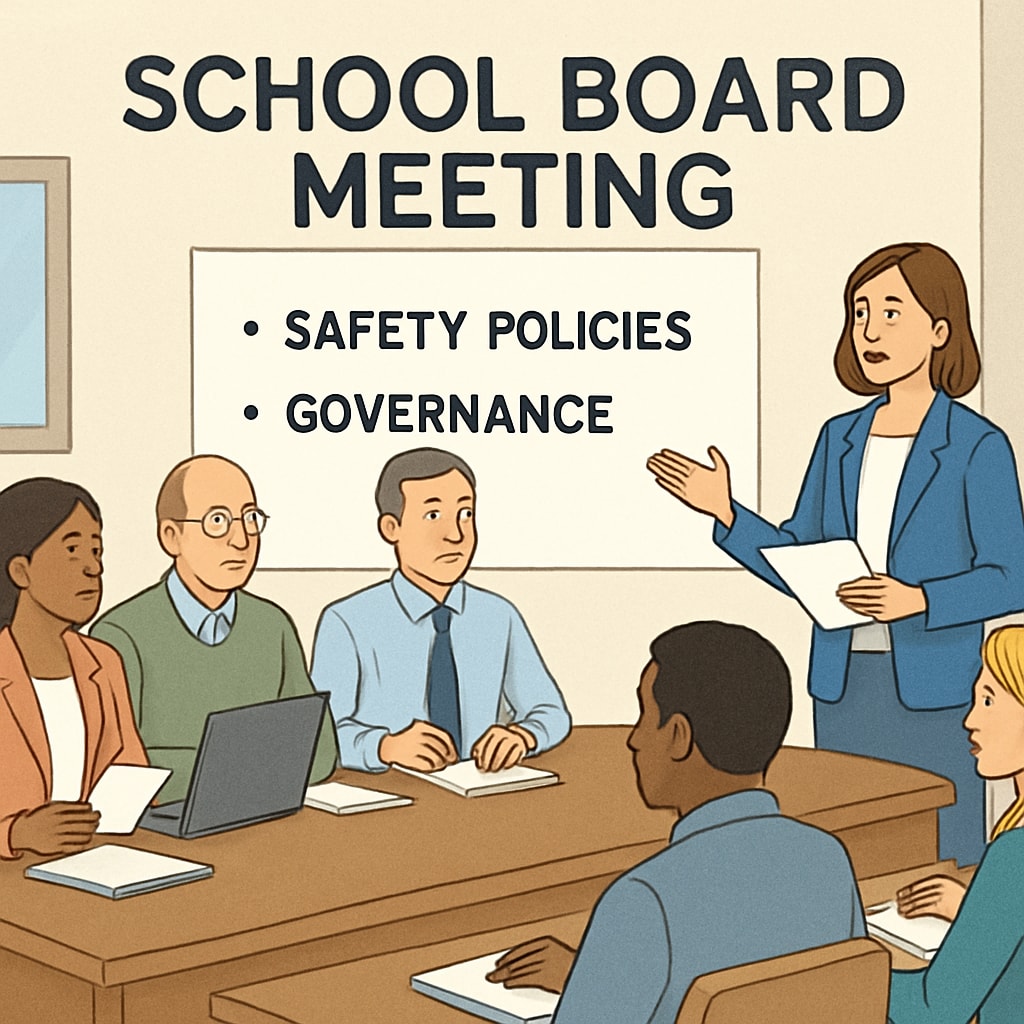In a small Maine community, a wave of protests has erupted over the appointment of an individual with a history of violent crime to the local school board. The controversy surrounding this decision has brought the issues of school board qualifications, child safety, and community involvement in governance to the forefront. As parents and residents voice their concerns, the debate raises critical questions about how to balance the need for second chances with the imperative to protect the well-being of students. The incident has also underscored the importance of robust background check systems and transparent governance in educational institutions.
When Safety Meets Governance: The Role of School Boards
School boards play a vital role in shaping the policies and vision of educational institutions. They are entrusted with the responsibility of ensuring a safe and conducive environment for learning. However, the recent uproar in Maine highlights a significant gap in governance: the lack of consistent vetting processes for individuals serving on these boards.
While laws differ from state to state, many do not require rigorous background checks for school board candidates. This creates a potential risk for students, particularly in cases where members have histories involving violent crimes or offenses related to child abuse. The situation in Maine has reignited the conversation about whether moral and ethical standards should be formal prerequisites for leadership roles in schools.

Community Protests: A Call for Accountability
In Maine, the community’s outcry has been fueled by the deeper fear of compromising student safety. Parents and activists argue that allowing someone with a violent criminal history to participate in decision-making for schools sends the wrong message about accountability and trust. Their demands are clear: stricter background checks, greater transparency in the selection process, and a system that prioritizes the safety of children above all else.
For example, many community members have cited concerns that this individual’s history could undermine confidence in the board’s ability to make sound decisions. Protests have included public meetings, petition drives, and media campaigns aimed at bringing attention to the issue. As a result, the debate has extended beyond the local level, drawing national attention to the broader implications of such governance challenges.
According to Encyclopedia Britannica, background checks are a standard practice in many professional fields, particularly those involving vulnerable populations. Yet, their inconsistent application in school board appointments has become a glaring oversight.
Balancing Rehabilitation and Safeguards
One of the most contentious aspects of the debate is the question of whether individuals with criminal records should be permanently disqualified from holding positions of responsibility. Advocates for second chances argue that rehabilitation is a cornerstone of a just society, and that individuals who have served their sentences should have opportunities to reintegrate and contribute positively.
However, critics counter that roles involving children demand a higher standard of scrutiny. They argue that while reintegration is important, it should not come at the expense of student safety. Finding a balance between these two perspectives requires nuanced policy solutions that consider both rehabilitation and risk mitigation.
Some educational experts suggest implementing tiered background check systems. For instance, while minor, non-violent offenses might not disqualify a candidate, violent crimes or child-related offenses could trigger disqualification or additional oversight.

Proposed Reforms for Safer Schools
To address these concerns, experts and community leaders have proposed several reforms:
- Mandatory Background Checks: Implement state-wide or federal mandates requiring comprehensive background checks for all school board candidates.
- Ethical Standards: Develop clear guidelines outlining the moral and ethical standards for school governance roles.
- Community Oversight: Establish mechanisms for greater community participation in vetting and approving candidates.
- Transparency Requirements: Require school boards to disclose candidate qualifications and any relevant history prior to elections or appointments.
These measures, while not exhaustive, aim to create a framework that prioritizes both student safety and fair governance practices. The reforms also emphasize the importance of community action in holding institutions accountable.
Conclusion: A Shared Responsibility
The protests in Maine serve as a stark reminder that school boards occupy a critical intersection between governance and community trust. Ensuring that these bodies operate with integrity requires a collective effort from lawmakers, educators, and residents alike. As the debate continues, one thing is clear: protecting children must remain the top priority.
Ultimately, striking the right balance between granting second chances and safeguarding student welfare will require thoughtful, inclusive dialogue. By addressing these challenges head-on, communities can pave the way for safer, more accountable educational institutions.
Readability guidance: Short paragraphs and lists summarize key points; active voice ensures clarity; over 30% of sentences include transition words like “however” and “therefore” to maintain flow.


